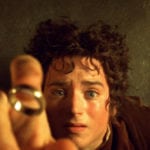 Animals
Animals  Animals
Animals  Movies and TV
Movies and TV 10 Box Office Bombs That We Should Have Predicted in 2025
 History
History 10 Extreme Laws That Tried to Engineer Society
 History
History 10 “Modern” Problems with Surprising Historical Analogs
 Health
Health 10 Everyday Activities That Secretly Alter Consciousness
 History
History Top 10 Historical Disasters Caused by Someone Calling in Sick
 Animals
Animals 10 New Shark Secrets That Recently Dropped
 Movies and TV
Movies and TV 10 Forgotten Realities of Early Live Television Broadcasts
 Technology
Technology 10 Stopgap Technologies That Became Industry Standards
 Weird Stuff
Weird Stuff 10 Wild Facts About Taxidermy That You Probably Didn’t Know
 Animals
Animals The Animal Kingdom’s 10 Greatest Dance Moves
 Movies and TV
Movies and TV 10 Box Office Bombs That We Should Have Predicted in 2025
 History
History 10 Extreme Laws That Tried to Engineer Society
Who's Behind Listverse?

Jamie Frater
Head Editor
Jamie founded Listverse due to an insatiable desire to share fascinating, obscure, and bizarre facts. He has been a guest speaker on numerous national radio and television stations and is a five time published author.
More About Us History
History 10 “Modern” Problems with Surprising Historical Analogs
 Health
Health 10 Everyday Activities That Secretly Alter Consciousness
 History
History Top 10 Historical Disasters Caused by Someone Calling in Sick
 Animals
Animals 10 New Shark Secrets That Recently Dropped
 Movies and TV
Movies and TV 10 Forgotten Realities of Early Live Television Broadcasts
 Technology
Technology 10 Stopgap Technologies That Became Industry Standards
 Weird Stuff
Weird Stuff 10 Wild Facts About Taxidermy That You Probably Didn’t Know
10 Beloved Pop Culture Icons With Hateful Histories
Whether it’s a song, movie, or book, we all have that one work that really resonates with us. We can watch, read, or listen to it again and again, marveling at the talent of the creative geniuses behind it. We imagine the satisfied artists looking up from their creations, smiles on their faces, knowing that they have done a service to mankind. But sometimes, the circumstances surrounding these works are nowhere near that romantic; in fact, sometimes, they’re downright nasty. The violence and hatred behind these ten aggressive artworks will ensure that you never see them the same way again.
10 Sherlock Holmes
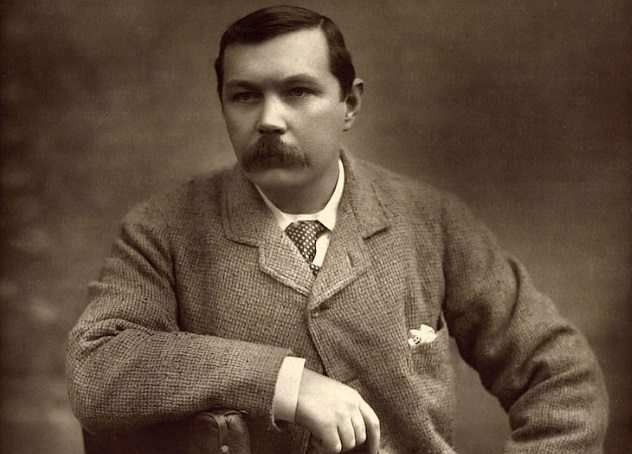
If you can only name one 19th-century literary character, it’s probably Sherlock Holmes. The hugely popular detective wowed audiences with his insane adventures and superhuman powers of deduction. Some have even credited the imaginary investigator with bringing the art of forensics to real-world crime fighters. So what could possibly defeat the greatest detective who ever “lived?” His own creator, Sir Arthur Conan Doyle.
In an odd turn of events for a massively popular author, Doyle absolutely hated Holmes. In fact, it was the character’s popularity that fueled Doyle’s hatred. Desperate for money, a young Doyle wrote fiction to supplement his income, playing with topics like man-eating plants and mummies before finally finding an audience with his detective character, Sherlock Holmes. Despite immediate commercial success, Doyle regarded his work with Holmes as cheap and hacky and preferred instead to work with more historical subjects. The public only wanted Holmes, however, and Doyle found himself growing exhausted by the increasing workload and ever more resentful of the fictitious man whose reputation was overshadowing his own.
So he tried to kill him. In the short story “The Final Problem,” Doyle sent his legendary super-sleuth out in style, throwing both he and his nemesis, Professor Moriarty, over a waterfall. Doyle said the decision was an act of self-defense, claiming, “If I had not killed him, he would certainly have killed me.”[1] Despite this passionate hatred, however, Doyle eventually gave in and brought Holmes back from his “faked death.” He continued writing stories he couldn’t stand for the rest of his life.
9 Pinkerton
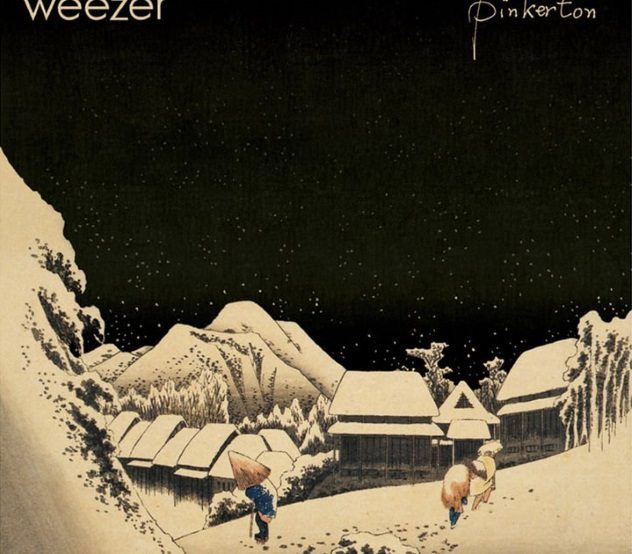
During the 1990s, the alternative rock band Weezer was a pretty big deal. Known for being the goofy, upbeat foil to a music scene that was busy taking itself way too seriously, the band’s first album enjoyed no small amount of success. Unfortunately, their second enjoyed the hatred of pretty much everyone.
Named Pinkerton, it was a dramatic 180 from the cheerfulness of the band’s previous offering. Written during an emotionally turbulent time in front man Rivers Cuomo’s life, the songs were a painstaking expression of personal turmoil. But the fans had been expecting more of the Weezer they had come to know, and they couldn’t wait to tear Cuomo’s heartfelt emotional work to pieces. Pinkerton was universally despised, prompting a humiliated Cuomo to compare the experience to “getting really drunk at a party and spilling your guts in front of everyone and feeling incredibly great and cathartic about it, and then waking up the next morning and realizing what a complete fool you made of yourself.”
But the hate was short-lived. In the early 2000s, the world came around to Pinkerton’s emotive vibe, requesting that the band play songs from the underappreciated album at their live shows. But Cuomo was less than relieved. The band’s fickle fan base had left the musician a bit bitter. Cuomo said in an interview: “It’s just a sick album, sick in a diseased sort of way. [ . . . ] Honestly, I never want to play those songs again; I never want to hear them again.”[2] Pinkerton has since been named Rolling Stone’s 16th greatest album of all time.
8 Willy Wonka & The Chocolate Factory
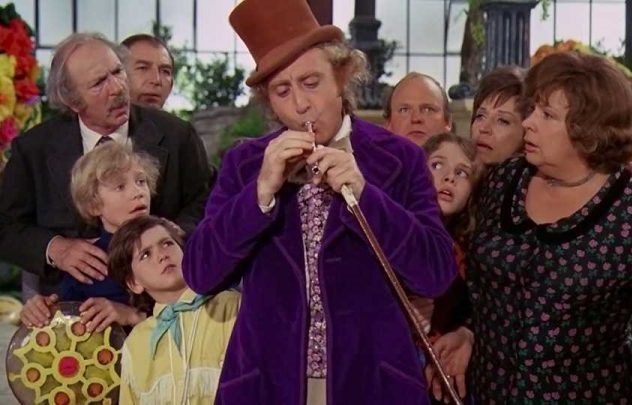
The 1971 film adaptation of the novel Charlie and the Chocolate Factory has been a favorite among kids everywhere for decades. This is somewhat perplexing, given that the tale focuses on the disappearances of several children under extremely suspicious circumstances, but one man wouldn’t have had it any other way. In fact, he was absolutely livid that the unsettling film version actually toned down a lot of the source material’s sinister shenanigans. It wasn’t anyone too important, though, just author Roald Dahl.
Yes, beloved children’s book author Dahl was furious with pretty much every aspect of his novel’s move to the silver screen. From the decision to cast Gene Wilder as the titular candy man to the alteration of the title to the addition of musical numbers, Dahl had no love whatsoever for the production. In general, he felt that the film—which, again, follows an intensely creepy chocolatier who casually brushes off horrific accidents involving children—tried too hard to be kid-friendly.[3] In fact, Dahl was so enraged at the lightening up of his work that he very nearly campaigned against the film in magazines and on TV. He eventually calmed down, but his faith in the film industry remained forever shattered.
7 Lolita
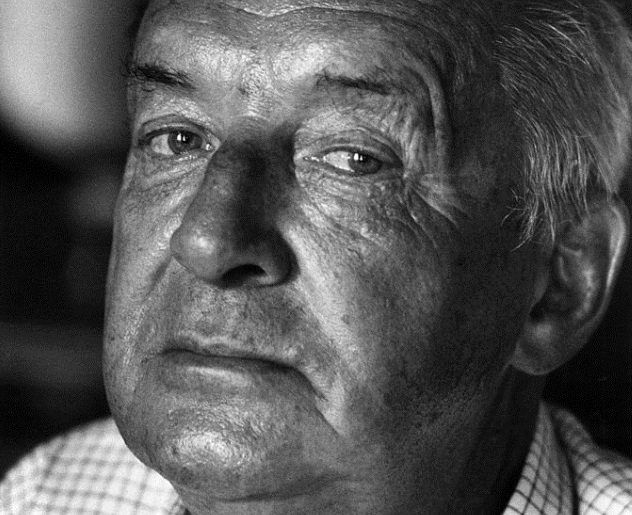
Vladimir Nabokov’s 1955 novel Lolita is regarded as one of the greatest literary works of the 20th century. But considering that it tells the tale of the love affair between a middle-aged man and the 12-year-old Lolita, one has to wonder exactly who decides things like that. Regardless, the world of literature nearly lost out on this “masterpiece” due to the violent mood swings of its creator.
One evening in the 1950s, Nabokov abruptly decided the manuscript he had been laboring over for years needed to be destroyed. Maybe it didn’t live up to his expectations. Maybe he was afraid for his reputation. Maybe he just wanted to remain safely off of any government watch lists. Whatever the reason, he scooped up the pages, took them to his backyard, and struck a match. This love-hate relationship with his work was nothing new, though, and his wife Vera had saved more than one of his manuscripts from similar funeral pyres. Lolita was no different; she rushed to the rescue and pulled the majority of the pages from the flames.[4] Nabokov eventually finished this controversial work, allowing the world to share his conflicted opinion of it.
6 ‘Pinball Wizard’
Have you ever done something you completely disapprove of to earn the approval of someone else? If so, I’m betting it left you feeling pretty terrible. Almost physically dirty, like you need a shower. Now imagine the entire world demanding you relive those feelings again and again for the rest of your life. Welcome to Pete Townshend’s world.
Townshend, songwriter and lead guitarist for The Who, found himself in a pretty grim situation when composing the rock opera Tommy. Things were going down the tubes, and the success of the project began to depend more and more on a good review from influential music journalist Nic Cohn. Cohn’s initial reaction to the album was lukewarm at best, but the quick-thinking Townshend devised a plan to salvage the review. Knowing Cohn was a huge fan of pinball, Townshend hinted around at a pinball-themed song he’d been considering. Cohn immediately called the project a masterpiece.
The only problem was that no such song existed. Townshend had to sloppily cobble together whatever awkward lyrics came to mind to produce “Pinball Wizard” for the critic. He later referred to the song as “awful, the most clumsy piece of writing I’ve ever done.”[5] Townshend was sure the song would flop, but much to his surprise, it became one of the band’s biggest hits. Unfortunately, this meant that for the rest of his career, he would be constantly reminded of the terrible song he wrote when he traded in his integrity for money. I’m not sure they make soap strong enough to wash that off.
5 The NeverEnding Story
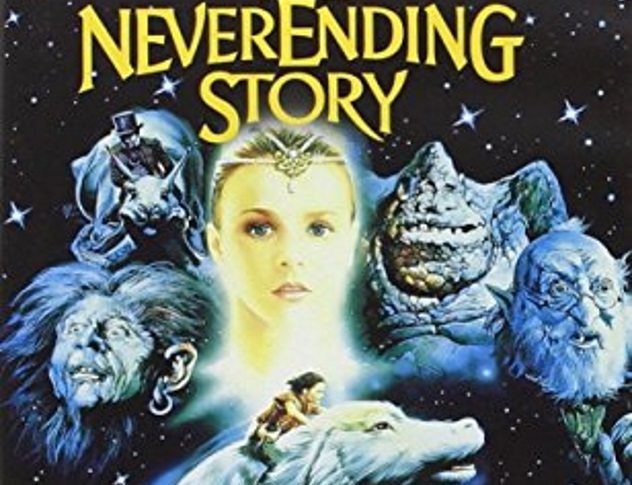
In 1984, the film The NeverEnding Story wowed audiences of all ages with its atmospheric approach to the fantasy genre. It became rather popular and spawned several sequels, so it’s interesting that so few people know that it was based on a novel. You can’t really blame them, though. That’s to be expected when the author completely loses his mind and disowns the project.
When fantasy novelist Michael Ende saw what the film industry had done to his baby, his reaction was less fairy-tale and more Incredible Hulk. Feeling his work had been butchered and sewn back together into a “melodrama of kitsch, commerce, plush and plastic,” Ende was furious at the film company’s focus on money over story. Having already sold the rights, however, there was little he could do but remove his name from the credits and distance himself from the project. Or so he thought.
Rather than cool down after leaving the incident behind, Ende only grew angrier. A few scenes that had been altered for the movie particularly annoyed him, fueling his rage until he took the company to court, demanding that they be removed. Despite court costs that ended up totaling more than he had been paid for the rights, he saw the fight as a matter of honor and refused to give in to the “dirty tricks” of the filmmakers. But after a protracted legal battle, he was forced to relent when the courts ruled in favor of the film company.[6] He never lost his bitter resentment for the industry.
4 The Work Of Emily Dickinson

If you have even a passing knowledge of poetry, you’ve probably heard of Emily Dickinson. The perfect picture of posthumous fame, this introverted American poet sold only eight poems during her life. Like so many literary greats, her work wasn’t fully appreciated until after her death. But if she’d had it her way, she would have immediately faded into obscurity following the burning of her entire collected works.
In stark contrast to the quiet, subdued image she was known to project, Dickinson apparently had a bit of a destructive streak. In letters to her sister, Lavinia, she demanded that upon her death, every piece of her writing was to be gathered up and burned, including the very letters used to make that request. This sudden and brash decision from the soft-spoken poet was shocking, to say the least.
But luckily for generations of poetry lovers, when Dickinson died in 1886 at the age of 55, Lavinia only half-honored her sister’s final wishes. She dutifully torched their old letters, but she couldn’t bring herself to destroy the 1,700 poems she discovered and instead worked for years to see them published. It’s a good thing, too. In 1893, The New York Times announced that “Emily Dickinson would soon be known amongst the immortals of English speaking poets.”[7]
3 ‘Cherry Pie’
Love it or hate it, hair metal band Warrant’s 1990 hit single “Cherry Pie” was easily the band’s crowning achievement. It was one of those incredibly polarizing tunes that led to half of the population humming, singing, or playing it nonstop, while the other half tried desperately to reach their happy place to avert the coming massacre. Unfortunately, the band’s lead singer Jani Lane was in that last group.
After sending their recently completed album off to the record company, the band was told that none of their songs had “hit” potential. They wanted something mindlessly—but profitably—catchy, so Lane angrily cranked out the most idiotic, repetitive, juvenile song imaginable, “Cherry Pie.” He assumed the overtly sexual anthem would never actually make it to the album, intending the unusable song as an insult. He was wrong.
Within days, the tune had taken over the entire album, and upon its release, its explosive popularity quickly consumed the band’s image, Lane’s in particular. His deliberately ridiculous ode to vaginas became his self-professed legacy, forever branding him as the “Cherry Pie Guy.” In an interview with VH1, he bluntly admitted: “I could shoot myself in the f—king head for writing that song.”[8] Lane passed away in 2011, his backfired insult following him to the grave.
2 Mary Poppins
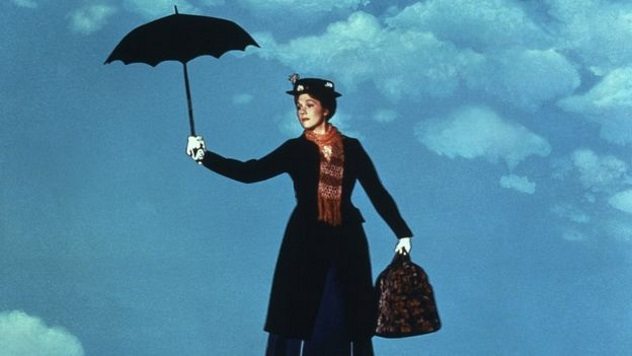
Few people seem to know this, but the hugely successful Disney film Mary Poppins was actually based upon a series of children’s books by P.L. Travers. It was only after two decades of hounding by Walt Disney that the reluctant author finally relented due to financial difficulties, allowing him to adapt her beloved stories to the big screen. And that’s the happiest part of the story.
From the very start, the process was devastating to Travers. She found fault with absolutely every decision Disney made, from the music to the script. She disliked the choice of actors and the appearance of animated penguins. She even—no joke—hated that the color red was used in the film. But what she loathed most was that Mary Poppins was portrayed as too nice. In the books, she was much more curt. Her fury became such an obstacle that Disney nearly refused to invite her to the premiere, fearing that she wouldn’t be able to control herself.[9] It might have been better if he had refused; Travers was seen weeping with frustration after the film was shown.
Sadly, Travers spent the rest of her life living in the shadow of her twisted work. Despite taking home five percent of the movie’s massive gross, she never recovered emotionally from the incident. In a film that brought joy to generations of kids, she saw only disappointment and regret.
1 To Kill A Mockingbird
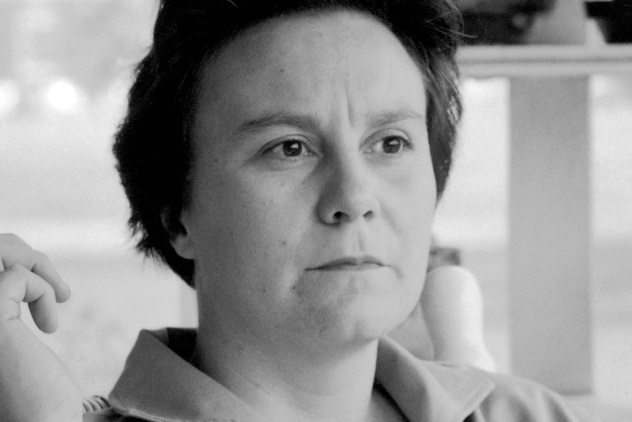
To Kill a Mockingbird is widely regarded as one of the greatest novels ever written. Dealing with the intensely heavy themes of racism and injustice, the tale has spoken to generations of book lovers the world over. But on one occasion, that drama managed to break free into the real world, nearly condemning one of mankind’s greatest literary achievements to a frosty grave.
The novel as we know it is the end result of an exhaustive process of edits and rewrites demanded by author Harper Lee’s editor, Tay Hohoff.[10] Little is left of the first draft, titled, Go Set a Watchmen, except for locations and character names. But these incessant revisions took their toll on Lee, who would spend hours arguing with Hohoff over her latest round of suggestions.
On one particularly intense occasion, a frustrated Lee threw the entire manuscript out of a window into the snow. Luckily, Hohoff made a pretty decent hostage negotiator and talked Lee out of letting the 20th century’s greatest novel die cold and alone. Eventually, Lee soldiered through the editing process and finished her iconic work, ensuring that all literature classes would have at least one awkwardly racist moment for decades to come.
To have your view of pop culture distorted even more, check out 10 Artists Who Hated Their Own Masterpieces and 10 Shocking Dark Sides To Beloved Famous People.

